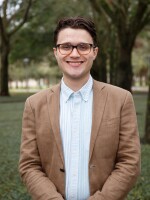If you're unmarried, childless and at least 25 years old in Florida, no one is able to sue on your behalf if you die from medical negligence.
Florida is the only state with the restriction, which also prevents those 25 and older from suing over the death of an unmarried parent.
A Florida House subcommittee approved a repeal of this law on Wednesday — the same repeal from last session that Gov. Ron DeSantis vetoed.
"How is it just for a family to be able to recover noneconomic damages when their loved one dies in a car accident, but not for death due to medical malpractice?" said Rep. Dana Trabulsy, R-Fort Pierce, the bill sponsor.
ALSO READ: To avoid 'flood gates” of litigation, DeSantis vetoes medical malpractice measure
Noneconomic damages relate to compensation for losses that don't have specific monetary amounts, like pain and suffering.
"I've lost a child to this," Cindy Jenkins said during public testimony. Her daughter died shortly after turning 25. "The doctors got a free pass, and I will forever refer to this as Florida's 'free kill law.' "
The bill made it through the Civil Justice & Claims Subcommittee on a 16-2 vote.
Lawmakers voting against — and members of the public speaking against — the bill (HB 6003) shared the same concerns DeSantis did when he vetoed it.
He said the repeal could be abused by "predatory attorneys."
ALSO READ: Florida House subcommittee will take up medical malpractice bill
"This legislation would increase costs to provide health care services to Floridians, especially in our rural and aging communities, expose Florida's physicians and health care providers to unpredictable liability, drive physicians to leave the state, and incentivize lawyers to bring unmeritorious claims," he wrote in his veto letter.
Whether the bill passes again — and whether it's vetoed again — will have to be seen once the regular session starts in January.
If you have any questions about state government or the legislative process, you can ask the Your Florida team by clicking here.
This story was produced by WUSF as part of a statewide journalism initiative funded by the Corporation for Public Broadcasting.





